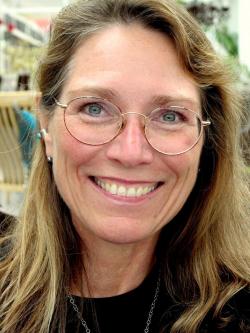On February 28, from 12 – 2 p.m., the Leduc Center for Civic Engagement at UMass Dartmouth will host the 2020 Engaged Scholarship Symposium. The event will be held in the Robert F. Stoico/FirstFed Charitable Foundation Grand Reading Room in the Claire T. Carney Library on the UMass Dartmouth campus.
Research from the lab of Jeanne B. Lawrence, PhD, shows that differentiated human cells retain the ability to undergo chromosome silencing in response to XIST, a naturally occurring “off switch” for the female X-chromosome. These findings, published in Developmental Cell, address a considerable obstacle in the potential development of chromosomal therapies and provide a platform to directly study the effects of trisomy 21 on neurodevelopment and eventually other cell types.
The Whitcomb quadruplets’ names begin with A, B, C and D – but their parents didn’t plan it. They just picked four names that they liked, and it turned out that way.
Likewise, three of the four quadruplets – Andrew, Collette and Diana – didn’t set out to go to the same college. Each decided to come to UMass Lowell for different reasons. Still, they’re happy to be together.
“It’s certainly a bonus that my sisters are here, but I would have come here anyway,” says Andrew, a business major.
Laetitia La Follette, associate professor and chair of the department of history of art and architecture, was elected to a three-year term as President of the Archaeological Institute of America (AIA) in January.
Professor Julie Brigham-Grette, geosciences, has been honored by Germany’s Alexander von Humboldt Foundation with one of its coveted Humboldt Research Awards, which will support her research collaborations there over the coming six months. 
Three startup companies with UMass Amherst ties earned cash prizes at the inaugural “Amherst Pitch Night” at AmherstWorks last week.
The event, hosted by representatives from UMass’s Berthiaume Center for Entrepreneurship, the Amherst Area Chamber of Commerce, AmherstWorks, Hampshire College Entrepreneurship and Valley Venture Mentors, consisted of five judges who collectively picked the top three places. The audience also voted for a fourth winner, given a $100 prize.
Assistant Professor of Chemistry Niya Sa’s expertise is in designing rechargeable battery materials, which is beyond the current lithium ion technology. Sa is the lead principal investigator of a $426,000 National Science Foundation-Major Research Instrumentation Program (NSF-MRI) grant, which she and her co-PI, Associate Professor of Chemistry Michelle Foster, have used to purchase a field emissions scanning electron microscrope. It’ll arrive in the Integrated Sciences Complex this spring.
24/7 Wall St. reviewed U.S. Department of Education data and determined that UMass Boston is the third most diverse four-year college in the United States. He authors of the report, published in USA Today, note that UMass Boston also costs far less than most other schools on the list.
BOSTON – University of Massachusetts President Marty Meehan announced today that he has appointed Katherine Newman to be the inaugural System Chancellor of Academic Programs, a position she will transition to as her term as Interim Chancellor at UMass Boston comes to a close.
AMHERST, Mass. – A University of Massachusetts neuroscientist will be featured in two television programs in February that will highlight her research on sleep.
Spencer, a professor in psychological and brain sciences, is featured in a new Netflix series called “Babies,” which debuts on Friday, Feb. 21 on the streaming service. On Wednesday, Feb. 26, Spencer also appears in a PBS NOVA program called “Mysteries of Sleep.” Check local listings for PBS program times.